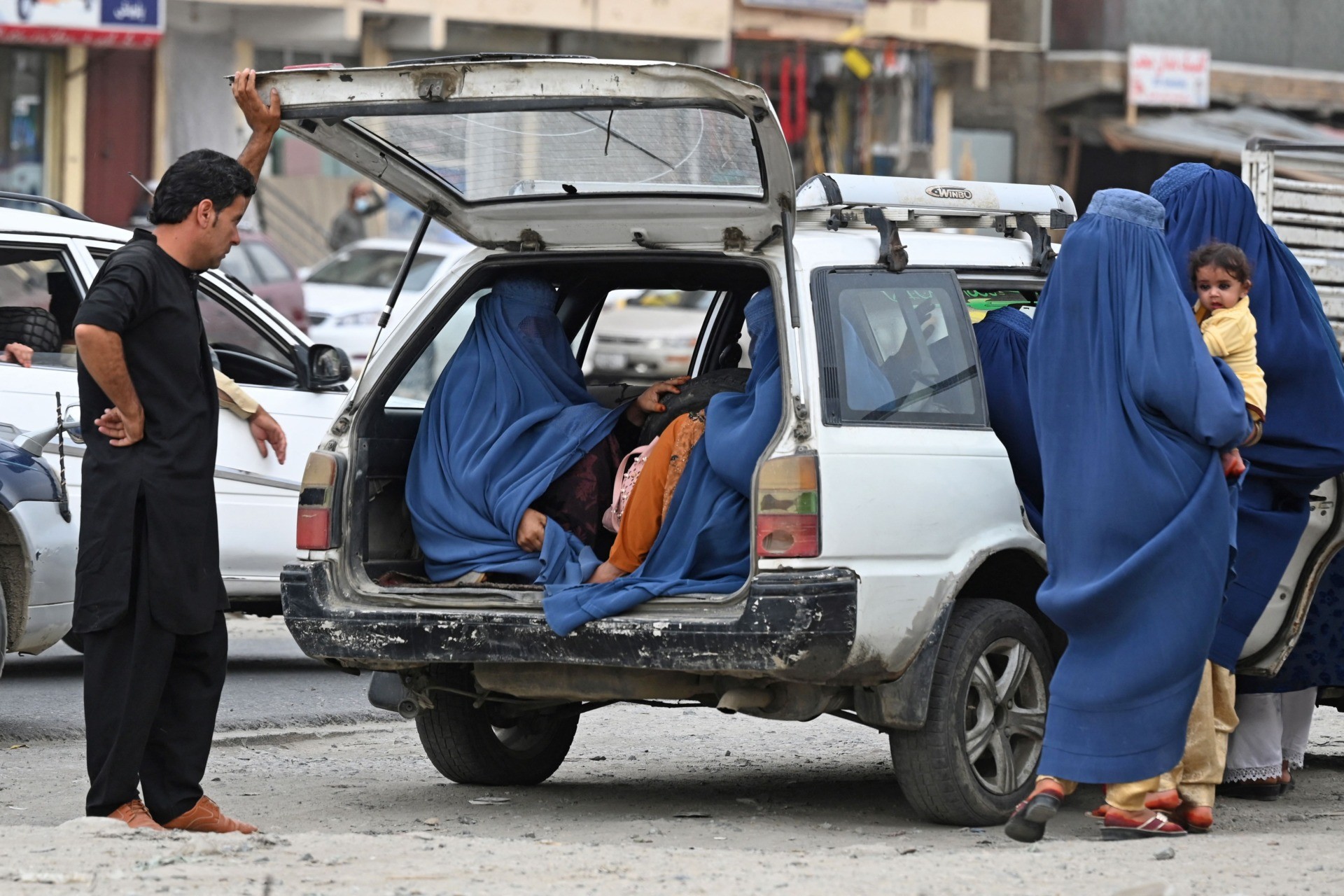Gauging the legitimacy of Afghanistan’s new Taliban rulers based on their women’s rights policy is “impulsive and irrational,” Hu Xijin, the editor-in-chief of China’s state-run Global Times, argued in an op-ed published Monday.
“Some people in China now use human rights issues, such as women’s rights, as the primary standard to decide if they will like the new regime in Afghanistan,” Hu wrote.

Taliban fighters display their flag on patrol in Kabul, Afghanistan, Thursday, Aug. 19, 2021. The Taliban celebrated Afghanistan’s Independence Day on Thursday by declaring they beat the United States, but challenges to their rule ranging from running a country severely short on cash and bureaucrats to potentially facing an armed opposition began to emerge. (AP Photo/Rahmat Gul)
“Such a focus of attention is a common perspective in modern society, and it does have its own intrinsic and realistic logic,” he acknowledged. “But it is impulsive and irrational to decide whether to develop relations with the new regime in Afghanistan on the basis of that standard alone.”
“[T]he practical effect of judging the Taliban from an ethical perspective and asking China to disdain [the] Taliban diplomatically is to cater to Washington’s policy in Afghanistan and to benefit the US,” Hu claimed.
“China will surely work to insert a positive influence on the Afghan administration. However, we cannot take the US’ national interests as a starting point. We do not dance to Washington’s drumbeat,” he asserted.
The Global Times — which is owned by the People’s Daily, an official Chinese Communist Party newspaper — published a separate article on August 23 supporting Hu’s opinion piece.
“In some Chinese observers’ eyes, it is unrealistic to expect the Taliban to be modernized and secular in all aspects immediately, as individual rights can only improve after economic development is realized and sustained, and then the modernization and secularism will follow gradually,” the newspaper argued.
“It is therefore unrealistic to expect the Taliban, if it assumes power in Afghanistan, to have a better record in terms of women’s rights than other existing Islamic emirates in the Middle East,” the Global Times added, citing political analysts such as Zhu Yongbiao, the director of the Center for Afghanistan Studies at China’s Lanzhou University.
“[T]here is no chance that Afghanistan will have a new government that is more moderate than Saudi Arabia, it’s just impossible,” Zhu told the newspaper, noting that Saudi Arabia’s government banned women in the Kingdom from driving until 2017.
The Taliban terror group seized control of Afghanistan on August 15. The jihadis’ shocking takeover saw the group depose Afghanistan’s U.S.-backed government from Kabul, the Afghan national capital and seat of government. The Taliban held a news conference in Kabul on August 17 in which its spokesman, Zabihullah Mujahid, claimed the Sunni Islam-based group would respect women’s rights within sharia, or Islamic law, though he did not elaborate. The Taliban infamously ruled Afghanistan from 1996-2001 through a system of sharia and forbade girls and women from attending school or working.

Women wearing a burqa get into a local taxi in Kabul. (Photo by SAJJAD HUSSAIN / AFP) (Photo by SAJJAD HUSSAIN/AFP via Getty Images).
Global Times editor-in-chief Hu Xijin indicated Monday that Beijing backs the Taliban’s rule over Afghanistan, despite its women’s rights record, because China has a vested interest in launching an economic relationship with the group.
“We need to calmly observe the Taliban’s rule and should not rush to conclusions in any direction. Meanwhile, we should open up the channels of contacts with the Taliban and prepare for advancing China’s national interests in the future situation in Afghanistan,” he advised.
Hu’s comments echo recent remarks made by China’s Ministry of Foreign Affairs on August 17, when Beijing offered to help fund “reconstruction” and infrastructure “development” projects in Afghanistan by collaborating with the Taliban.

COMMENTS
Please let us know if you're having issues with commenting.